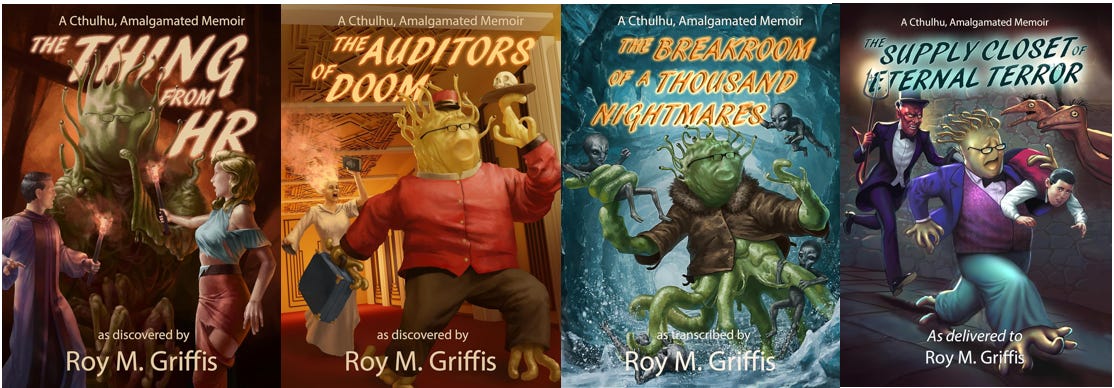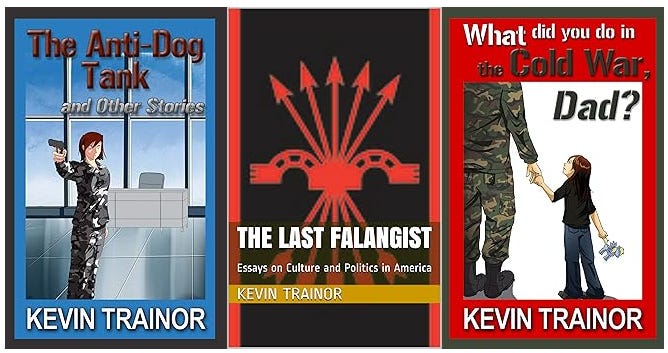The 2025 Summer Based Book Sale After-Action Report
The Top-25 Based Books and Plans for Upcoming Sales
The final numbers are in.
Amazon reports the Summer 2025 Based Book Sale moved 1317 Kindle Free E-books and 1953 Kindle Paid E-Books for a total of 3270 books. And, there were many additional books sold outside the sale. As of this writing, the year-to-date total was 1590 Kindle Free E-books and 5108 Kindle Paid E-Books. That’s 6698 total, comfortably more than the total of all books referred last year… and we have two more quarterly sales to go!
Moreover, the Based Book Sale has helped Based Authors place over TWELVE THOUSAND Based Books into the hands of Based Readers since moving to Substack at the beginning of 2024.
This post will present detailed results for the top twenty five, offer a comprehensive list of the top two-hundred sellers, provide a sale traffic analysis, and conclude with our future plans.
The Top Ten Based Books of Summer
Rafael Sabatini’s genre-defining Captain Blood took top honors. Sabatini’s tale of a doctor wrongly accused of treason and sold into slavery, only to escape and embark on a career of piracy was inspired by the real-life career of Henry Morgon. “The deeds of Captain Blood were misunderstood, forgotten, or deliberately confused with those of less honorable men like Morgan,” insisted Sabatini, “and this confusion of identities or misreporting of history is what the book sets out to correct.” Sabatini positions his account as the truer version, rescued from obscurity and confusion, in part by referring to “certain chronicles” and unpublished records.
Science fiction grandmaster John C. Wright took second place with his newly reissued The Iron Chamber of Memory: “[a]n eerie, suspenseful, romantic fantasy in the mood of C. S. Lewis and Charles Williams.”
“I never had an idea more beautiful or haunting than The Iron Chamber of Memory. It is a fairy tale for adults, a theological meditation, a time travel story, a ghost story, and a story about love and honor and remembering what you should not forget.”
King Solomon's Mines came in third. H. Rider Haggard defined the genre of lost-world fiction with stories that blend Victorian sensibilities, ancient secrets, and thrilling adventures. Allan Quartermain, hero of King Solomon's Mines, was a direct inspiration for Indiana Jones. Which character is better? Read and find out!
M.S. Olney’s The Sundered Crown Saga (1-3): (Books 1-3+ The Nightblade prequel novel) is in fourth place. This epic fantasy boxset - a complete trilogy - is a tale of magic, monsters and epic battles. Olney is also doing his part to boost fellow indie authors with his Epic Indie website, and his own periodic sales. His next sale runs July 7-12.
Rounding out the top five is Yuval Kordoc’s Orders of Magnitude, a gripping new novella that explores the resilience of the human—and holy—spirit in the darkness of the void.
We’ll deviate from a strictly linear following of the rankings to highlight Roy M. Griffis’s The Cthulhu, Amalgamated Memoirs. The first book in the series, The Thing From HR is in sixth place. “Picture The Office meets Cthulhu, meets Scooby Doo,” declares Blaine Pardoe.
Book 2 The Auditors of Doom is in thirteenth place, Book 3 The Breakroom of a Thousand Nightmares is in twelfth place, and Book 4 The Supply Closet of Eternal Terror is in eighth place. Can a Bad Thing be a Good Guy? Find out in this “…wild and funny romp with horror and humor.”
In seventh place is Robert Kroese’s Mercury Falls. “The Apocalypse is nigh in this whimsical, riotous debut. Christine Temetri, a freelancer for a popular religious news magazine, is tired of endless assignments covering cults incorrectly prophesizing the End of Days. When she talks her boss into giving her a better assignment, she doesn’t anticipate it will actually lead her back to a cult leader: the charismatic Galileo Mercury, who turns out not to be a cult leader at all, but a bona fide angel.”
The leader in the 2025 overall Based Book rankings going into the sale, Ryan M. Patrick, made the top ten in ninth place with The Martian Incident: A Science Fiction Thriller. “When a mysterious aerial drone is shot down on Mars near the American colony of Columbia, NASA accident investigator John Cameron joins a joint DOD team to recover it. But, as a sandstorm moves in to blanket the area, the Americans are attacked by an overwhelming enemy force of EU soldiers in a surprise attack.”
Rounding out the top ten is Mark Sowers’s Enders & Associates. A former FBI investigator with uncanny insight inherits a mysterious silver mine in Arizona and uncovers a hidden family legacy linked to decades of strange deaths and disappearances in a remote desert town. “Another captivating engagement with an intriguing exploration of contrasting elements of human nature. From the cold Alaska woods to the searing Arizona desert, and from the wonder of love to the horror of evil, Mark Sowers transports readers throughout the full spectrum of life on this well paced tale full of hope and despair in full measures.”
The Rest of the Top 25 Summer Based Books
In eleventh place is Tyler Cook’s short collection, The One-Minute Mysteries of Inspector Gerard: The Ultimate Flatfoot. “Ever noticed how "Two-Minute Mysteries" always contain the most inane, unlikely solutions? So did writer and musician Tyler James Cook, who grew weary of solutions like, ‘He couldn't have stolen it, because he can't put his left hand in his right pocket.’ Balderdash! In the spirit of those mysteries, Cook created Inspector Gerard, a grizzled, film noir detective from Aurora, Illinois. Gerard sees the clues no one else sees--including the reader.”
Coming in fourteenth place is Hans G. Schantz’s The Wise of Heart, a courtroom drama of biological science versus transgenderism that brings the Scopes Monkey Trial up to date for the twenty first century. “Reader, I want to grab you by the lapels, pull you close, and tell you in an urgent heartfelt whisper that a physicist, of all things, has written one of the best social parodies of the current horrible era.”
The Complete Father Brown Mysteries by G. K. Chesterton is a perennial sale favorite, encompassing two dozen short stories and novellas featuring G. K. Chesterton's legendary detective, Father Brown. This Chesterton collection ranks fifteenth.
Robert Kroese’s The Brand of the Warlock is first in the swords & sorcery, Counterfeit Sorcerer series and sixteenth in the Summer Sale rankings. “His name is Konrad, and he has a secret.... Once an ordinary soldier, his life was forever changed by a fateful meeting with a dying sorcerer. Now he is all that stands between civilization and the creeping evil of the shadow world.”
Smart and Sexy: The evolutionary origins and biological underpinnings of cognitive differences between the sexes by Roderick Kaine is in seventeenth place. “Intelligence differences between men and women, which are both real and substantially meaningful, are due primarily to hormonal influences on brain development and pseudo-dominance of the X chromosome working in combination. This book provides the evidence for this assertion, explores why we evolved this way, and discusses the various real-world consequences of this biological fact.”
John C. Wright’s story, One Bright Star to Guide Them, arguably the book that broke the Hugo Awards, ranks eighteenth. To grasp the full measure of the corruption and depravity behind today’s Hugo Awards, just read One Bright Star to Guide Them, and then learn how both it and its author were deliberately “No Awarded.”
In nineteenth place, Roy M. Griffis appears yet again with Holding the Line: Book One of The Long Watch. “Holding the Line by Roy Griffis was just what I was looking for in a new read. It follows a young man in his first year at a military school navigating the awkwardness of meeting others from different backgrounds while trying to form a cohesive group. Throw in some strange and spooky happenings at the old school, a new love interest and some nightmarish sci-fi like creatures, that may or may not be real, and it will keep you turning the pages to find out. I'm eagerly awaiting the sequel!”
Six go into the woods and three come out in J.P. Choquette’s Shadow in the Woods (Monsters in the Green Mountains) which is in twentieth place. “What is real and what is folklore? Are monsters like Bigfoot still alive in the deepest areas of Vermont's Green Mountains, or just characters in stories told around the campfire? Folk legends come to life in this heart-rate-accelerating suspense thriller novel by J.P. Choquette.”
All Men Dream of Earthwomen and Other Aeons by John C. Wright ranks twenty first. “Behold future wars and children's power armor, see the planetkiller seeking immortal vengeance against planetkillers, learn whom the choosers of the slain will choose for love, or when the dolphins will inherit the earth, or why all men dream of earthwomen. Enjoy these haunting tales of futures near and far by Science Fiction master John C. Wright.”
Nick McPherson’s Chosen: The New Order (The Grim King Saga Book 1) came in twenty second. “Worlds collide as three boys find themselves sought after for abilities they didn't know they had, abilities that may yet quell the darkness that is awakening across the realm of Endland. That is, of course, if they can survive the interdimensional portal to get there.”
A special shout out to Fenton Woods who offered Pirates of the Electromagnetic Waves for free in the sale (the price has reverted now to $0.99). We don’t have visibility on free downloads, but the author reports about a hundred readers took advantage of this offer. “A young radio engineer travels across an alt-history America, encountering primeval gods, mythical beasts, and tall tales come to life, in a quest to build a radio transmitter that can reach the stars.” The first three volumes of the five-volume Yankee Republic series were only $0.99, including The Tower of the Bear (Yankee Republic Book 3) which came in twenty third.
From the author of The Mystical Adventures of Stavros Papadakis comes a comic novel about family, faith, and second chances. Making a Better World by Michael Lacoy is in twenty fourth place. “A mix of satire and romance, family drama and social commentary, the novel touches on a number of today’s hot-button issues: internet cancel culture, woke capital, the crisis in the Catholic Church, the treatment of the elderly, and the raising of children. Witty and big-hearted, Making a Better World takes a playful look at the way we live now.”
In twenty fifth is professional curmudgeon Francis W. Porretto with The Death Cults: The Drive For Human Extinction. “Western Civilization is under siege by an array of forces whose details vary but whose central thrust is opposed to human life: its origination. its perpetuation, and its expansion. All of them reject the premise that human life is sacred. These are the Death Cults. Know them for what they are, and for what they mean to do.”
Better known for his libertarian science fiction Spooner Federation Saga and Realm of Essences, Porretto, who blogs at Liberty’s Torch, also had his Onteora County Romance, Doors, in the sale.
The Top Hundred
Here are the sales statistics for the top hundred. Note that all the books in the top fifty four registered at least ten sales.
The Next Hundred
Most every book registered at least a couple of sales. What was the difference between those that racked up dozens of sales and those that ended up with just a couple? Covers and blurbs are a critical factor, and author-editor L. Jagi Lamplighter Wright has volunteered to help Based Book Authors up their game with some tips on a more professional presentation in a future post.
Traffic Report
We saw some modest growth relative to the baseline set in the Spring Sale. Notably, our periodic niche sales are driving some traffic between the major quarterly sales.
Who’s referring all this traffic? Most of it is organic or direct - subscribers to the Based Book Sale Substack who get the emails or are following Substack on the App or online. Speaking of which…
That’s a good thing, because it means we’re doing a good job converting all the people who visit us into permanent members of the Based Book community.
Outside Substack, our biggest traffic source is Twitter, powered by the hard work of participating authors and readers who shared news of the sale.
Closely behind Twitter is voxday.net, blog of Vox Day, author and publisher at Castalia House.
He also runs such diverse Substacks as Sigma Game, advice and analysis on the socio-sexual hierarchy from the original sigma male, Arkhaven, the Substack for Arkhaven Comics, Dark Legion Comics, and Arktoons, and AI Central.
Anonymous Conservative, proprietor at the eponymous Anonymous Conservative Blog and American Stasi (whose free ebook was a non-fiction offering in the sale) drove a significant amount of much appreciated traffic.
Visit AmericanStasi.com, the most important website on the internet, and see firsthand the massive Stasi-like domestic spying operation in the US which is targeting you and your loved ones.
Facebook was closely followed by John C. Wright’s, SciFiWright Blog in the list of top traffic sources.
The Ace of Spades HQ Sunday Morning Book Thread, posts every Sunday Morning at 8am CT and is a great way to see what books people are talking about and maybe add your thoughts in comments. Perfessor Squirrel, proprietor of the Sunday Morning Book Thread, was kind enough to give us a shout out.
Next in referrals was Andrew Torba’s Gab, followed by Fandom Pulse, your source for the hardest hitting pop culture entertainment journalism.
Here again, there is a long tail of blogs, social media, and Substacks driving readers to the Based Book Sale, for which we are all very grateful.
Here are the detailed statistics of our traffic sources
There was a long tail of blogs and Substacks contributing dozens of views and referrals. Your efforts are all much appreciated.
Kudos and thanks to Kevin Trainor, author of The Anti-Dog Tank And Other Stories, What Did You Do in the Cold War, Dad? and The Last Falangist: Essays on Culture and Politics in America for personally driving over 400 views, according to the Substack statistics.
Summary of Total Books Referred
The Based Book Sale has helped Based Authors place over twelve thousand Based Books into the hands of Based Readers since moving to Substack at the beginning of 2024. Here’s a detailed breakdown by sale showing sale post views and books referred.
The Based Book Sale Rankings are rapidly becoming a reliable indicator of the best in Based Literature, from classic works to pulp adventures. The power of collective marketing - of Based Authors working together to promote awareness of each other’s books - is manifest in these results.
What’s Next?
First, here’s the schedule for the remaining 2025 sales:
BasedCon Based Book Sale: Wednesday, September 3, 2025, 12:00 AM PDT through Wednesday, September 10, 2025, 12:00 AM PDT.
Black Friday/Cyber Monday Based Book Sale: Wednesday, November 26, 2025, 12:00 AM PST through Wednesday, December 3, 2025, 12:00 AM PST.
Be sure you are signed up to get the call for authors a couple of weeks in advance of each of these sales.
Second, we’re going to continue having some more targeted and niche specific sales. DM @aetherczar on Twitter to be added to the Based Book Sale discussion group.
That’s it for now. Thanks for being part of the Based Book community.
Appreciate the Based Book Sale, but maybe not quite enough to spring for a paid subscription?
Then click on the button below to buy me a coffee. Thanks!

























Good breakdown of the analytics
To follow up on my comment posted on the Summer Sale, now that stats can validate it:
a) If you make the 2nd or later books 'on sale' but the first book is still full price, we're not likely to take the risk, coming in the middle of the story
- Proven accurate in most cases by the metrics.
b) If your book is already on Kindle Unlimited, a 99 cent sale isn't much of a deal, and speaking just for myself, I'm more likely to pass it over in favor of the non-Unlimited books, {...}for Kindle Unlimited subscribers, it's the same problem: paying for a book you get 'for free' already seems a poor choice.
- I have not dug into the specifics but I think this is true based on the items I recognized as KU or Not. Certainly not all of the best sales numbers are not KU, but I suspect more aren't than are, especially if you remove factors like author popularity/etc.
c) I absolutely look at the page count (ie size of the book), and it factors into my choices of what's worthwhile.
-- also looks true, but I haven't tried to analyze that... but I suspect single short story/novellas didn't sell as well as omnibuses or full novels....
In addition to the tutorials on how to improve covers/blurbs/etc, I strongly suggest pre-educating authors on how to better maximize sales (and free publicity giveaways) for the next sales well ahead of time. While being on KU can be a economic choice, choosing to not be on KU (the all you can eat buffet of ebooks) can be a rational decision for this marketplace... If your audience is leaving Amazon-garden (slowly more common), or if they aren't paying for KU, then a 99 cent sale makes sense... if they use KU, why pay 99 cents when they get it anyway? Give away the first book for free, and then they'll KU the later ones, or give away that short story/novella to encourage them to buy longer works... and so on.